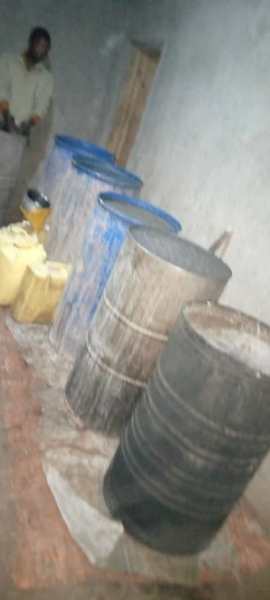
A man identified as Jean de la Paix Nsengiyumva was arrested on January 27, in Rugarama Sector of Burera District for running an illegal brewery and distilling illicit alcoholic drinks.
Nsengiyumva was operating the distillery from his home located in Karangara Cell where Police and local leaders recovered 2,130 litres of illicit brew.
Chief Inspector of Police (CIP) Alexis Rugigana, the Police spokesperson for the Northern region said that Nsengiyumva was reported by residents.
“Nsengiyumva had turned one of the rooms into distillery with drums and other big containers used to produce a psychotropic substance called Ibikwangari. He had also turned his home into a bar selling the illicit drinks to consumers but also supplying other bars,” CIP Rugigana said.
He added that Nsengiyumva was using varied harmful raw materials, dirty containers as storage and operating in unhygienic place.
According to local residents, some consumers would fight after drinking the substances.
There are also cases of domestic violence, assault, defilement and rape in the area that have been attributed to the consumption of illicit brew.
CIP Rugigana thanked the residents, who provided information on Nsengiyumva’s criminal acts, and called for strengthened partnership in identifying all dealers in illicit brew.
Rwanda Standards Board (RSB) specifies that “only food grade processing aids recognized as safe for human consumption shall be used during the manufacture.”
Other standard requirements include labeling as a prerequisite; the name of the products, physical and postal address of manufacturer; net contents in milliliters or liters; ethyl alcohol content; date of manufacture and expiry date; storage instruction; statutory warnings; and list of ingredients in descending order.
All drinks with alcoholic content above 45 percent or with unknown alcoholic content and without an S-Mark are considered as a psychotropic substance.
Ibikwangari are classified as simple drugs under the Ministerial Order No.001/MoH/2019 of 04/03/2019 establishing the list of narcotic drugs and their categorization.
In article 263 of the law determining offences and penalties in general, it specifies that anyone convicted for “simple narcotic drugs” faces between seven and ten years in prison, and a fine of between Frw5 million and Frw10 million. (End)
